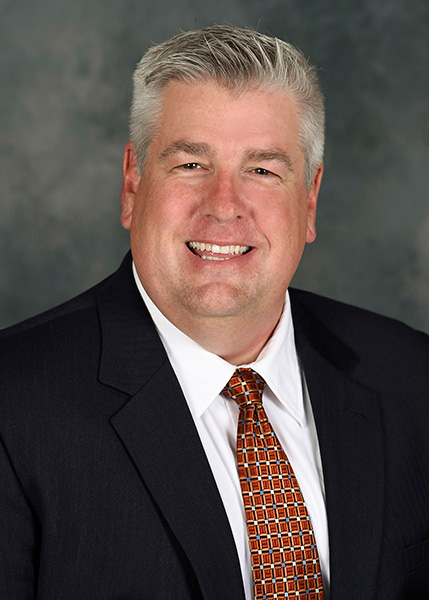- Faculty
- Scott Eldredge
Scott Eldredge

Biography
Dr. Scott Eldredge is an Associate Professor in the Communication Department at Western Carolina University. Prior to moving to Western North Carolina, Dr. Eldredge spent 20 years working for some of the world’s largest advertising and communication agencies including J. Walter Thompson and Lowe Campbell-Ewald. His background includes experience working for a diverse list of clients including General Motors, Ford Motor Company, OnStar, Novartis, and M&M/Mars. Dr. Eldredge now teaches public relations courses including Introduction to Public Relations and Public Relations Campaigns, as well as topic classes in Health Communication, Conflict Resolution, and Social Media Management. He also serves as the faculty adviser for the WCU chapter of the Public Relations Student Society of America, and for Catamount Communications, WCU’s student-run Public Relations firm.<br><br>Dr. Eldredge holds a Ph.D. in Communication and Information from the University of Tennessee, a Master of Arts in Advertising from Michigan State University, and a Bachelor of Science in Telecommunication (News & Public Affairs) from the University of Florida.
Education
- Ph D, University of Tennessee Knoxville, Communication & Information
- MA, Michigan State University, Advertising
Teaching Interests
I believe that being social creatures, the need to build meaningful connections with others is a fundamental driving force that everyone carries internally, and for this reason, I tell my students communication is the most important major on campus. The notion of fostering connection and facilitating relationships flows through all the courses I teach, from public relations, to social media, to conflict resolution, to health communication.
Research Interests
Dr. Eldredge conducts research in the area of Health Communication looking at family communication and health, as well as patient-provider interaction. Specifically, his research agenda is built around issues involving intimacy, uncertainty, trust, and relational development and maintenance. His dissertation, “Intimacy Uncertainty and Identity in Gay Male Couples Dealing with a Serodiscordant HIV Status,” discusses the health and illness experience of the healthy partners of men living with an infectious, chronic illness.